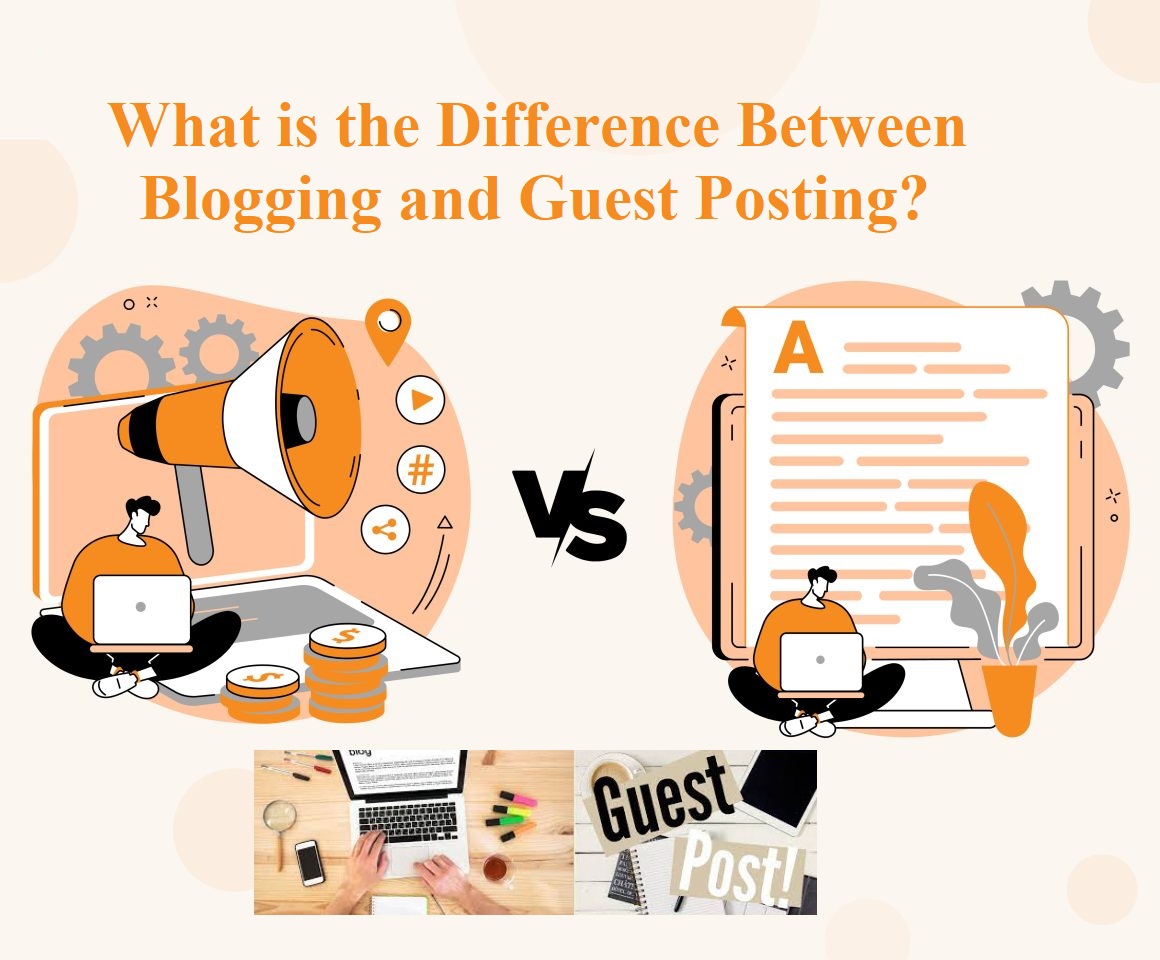Blogging and guest posting are two distinct practices in the realm of content creation, each serving different purposes and audiences. Both blogging and guest posting involve writing content, they differ significantly in terms of ownership, purpose, audience engagement, and strategic goals.
Blogging
Blogging refers to the act of writing and publishing content on your own blog. This content can encompass various formats, including text, images, infographics, or videos. The primary goal is to share insights, opinions, or information with your audience and engage them over time.Blogging Benefits
- Establishes personal or brand authority.
- Fosters a community around shared interests.
- Provides ongoing engagement with a dedicated audience.
Guest Posting
Guest Posting (or guest blogging) involves creating content for someone else's blog or website. This practice is typically aimed at reaching a new audience, building backlinks, and enhancing brand visibility. Guest posts are often written with a specific promotional intent in mind.Guest Posting Benefits
- Expands reach by tapping into established audiences.
- Enhances SEO through backlinks from reputable sites.
- Builds relationships within the industry and increases brand credibility.
-
Ownership and Audience
-
Ownership
In blogging, you own the content you create; it reflects your voice and brand identity. In contrast, guest posts are published on another site, meaning you do not control the platform or its audience. -
Audience Engagement
Blog posts cater primarily to your existing audience, focusing on topics that resonate with them. Guest posts target the audience of the host blog, aiming to attract new readers and potential customers.
-
-
Purpose and Intent
-
Purpose
The main purpose of blogging is to provide valuable content that informs, entertains, or engages your readers without an overt promotional agenda. It helps establish authority and build a loyal readership over time. -
Intent
Guest posting usually has an ulterior motive such as promoting a product or service while also providing value to the host blog's readers. This promotional aspect is often more pronounced than in standard blogging.
-
-
Content Strategy
-
-
Content Creation
Bloggers typically write about topics they are passionate about or that align with their brand's mission. They have the freedom to explore various subjects without external constraints.
-
